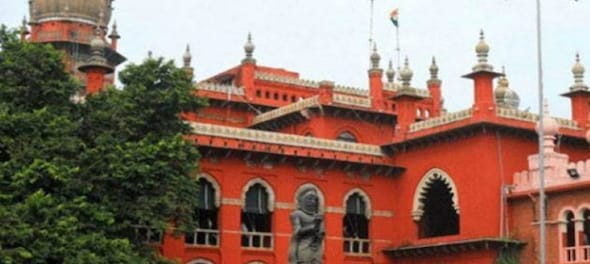
Case 1: No case lies for a bounced cheque towards illegal advocate fees
The Madras High Court on September 7 in a matter —Davidraj vs V. Pavel represented by his Power of Attorney G. Pandian— mercilessly castigated an advocate for pressing charges of dishonour of cheque under the Negotiable Instruments Act in the face of the fee being in violation of Legal Practitioner’s Fees Rules 1973. Besides being in excess, it was also a contingent fee meaning dependent on the outcome of the case and the size of the relief or compensation obtained for his client.
Incidentally, while the Indian law frowns on contingency fees, the law in the USA allows advocates to bill their clients on contingency basis i.e., the outcome and the size of monetary compensation obtained. There is a view that this has been at the base of ‘ambulance-chasing lawyers”. Patients and their families are egged on by such lawyers to sue the hospitals with the promise of enormous compensation gotten for medical negligence. A sliver of such compensation is to be paid as the advocate’s fee.
There is a view that such a practice is not after all not so repulsive as it appears at first sight. Come to think of it, an advocate works hard salivating at the prospect of riding piggyback on his client’s success, particularly its scale —larger the compensation obtained, larger the fee. There is no conflict of interest nor encouragement to frivolous cases as in any case the court would throw out vexatious cases.
Again incidentally, lawyers in India are forbidden by their Code of Conduct from suing for their fees. At the same time, they guard their turf with over-billing often in the region of upwards of Rs 50 lac from the well-heeled and desperate clients.
Case 2: Capital gains on rollover isn’t available for foreign properties
On September 12, the Bombay High Court in Hemant Dinkar Kandlur vs Commissioner of Income Tax held that the rollover benefit under section 54F of the Income-tax Act, 1961 was confined only to purchase or construction of replacement houses in India.
The appellant, an NRI, had sold his residential property in India and had within the prescribed time obtained a property in the USA. He claimed exemption from tax of capital gains earned on his Indian property. He did so relying on the absence of words ‘in India’ in the context of the location of the replacement property before the 2015 amendment.
The Bombay High Court agreed with the department’s contention that the objective of section 54F was to encourage investment in India and thus the 2015 India was both retrospective and clarificatory. Obviously, any tax benefit is in the enlightened interest of the nation. What does India gain when an NRI purchases a flat in the USA?
Right to redeem mortgage isn’t indefinite
The Supreme Court on September 21, laid down the limits for procrastinations and delaying tactics for borrower under the Securitisation and Reconstruction of Financial Assets and Enforcement of Security Interest Act, 2002 (SARFAESI Act).
This law was brought into the statute in 2002 to strengthen the hands of the secured creditors, mainly the banks and financial institutions against the delaying tactics of borrowers in servicing the loans— the principal reason for the phenomenon of bad debts or non-performing assets (NPAs) in India. The law authorises mortgagees to sell the mortgage properties without the intervention or leave of the court in the face of persistent stonewalling by such defaulters who laugh up their sleeves at the seeming helplessness of the lenders.
It was a good law but not used fully by banks. The defaulters on their part hold the hands of the banks with promises of quick settlement. It is in this light that the Supreme Court verdict that the right to redeem the loan is not an indefinite one is welcome. Once the bank announces the auction of the mortgage asset, it is the end of the road for redemption unless the auction fails. The defaulter cannot keep on erecting roadblocks against realisation of dues by banks by citing one right after another. Having failed to repay the loan with interest, it is not for the defaulter to heckle the bank at every stage from realising its dues.
—This column, Legal Digest, interprets various case verdicts or procedures and their implications in the current social and business scenario. The author, S Murlidharan, is a CA by qualification, and writes on economic issues, fiscal and commercial laws. The views expressed are personal.
Read previous Legal Digest columns here
(Edited by : C H Unnikrishnan)
First Published: Oct 5, 2023 8:22 AM IST
Check out our in-depth Market Coverage, Business News & get real-time Stock Market Updates on CNBC-TV18. Also, Watch our channels CNBC-TV18, CNBC Awaaz and CNBC Bajar Live on-the-go!


Dharwad Lok Sabha Election 2024: BJP's Pralhad Joshi eyes fourth term from this Karnataka seat
May 7, 2024 9:33 AM
Gulbarga Lok Sabha election: Mallikarjun Kharge's son-in-law Radhakrishna faces sitting BJP MP Umesh Jadhav
May 7, 2024 9:00 AM
Guna Lok Sabha Elections: 16.43% voting done till 9:00 am
May 7, 2024 8:51 AM

